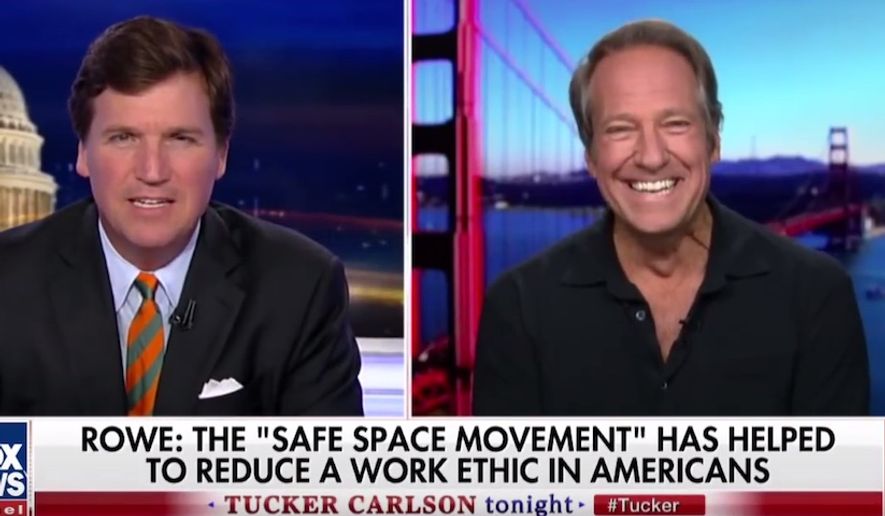Mike Rowe of “Dirty Jobs” fame says it’s difficult to award work-ethic scholarships through his mikeroweWORKS Foundation due to America’s “safe space movement.”
The host of Facebook’s “Returning the Favor” told Fox News’ Tucker Carlson on Thursday evening that each year it gets harder for him to essentially give out “free money” to Americans who need jobs training. His organization, which aims to close a professional skills gap, requires participants to write essays and sign a “sweat pledge.”
“Every year it gets increasingly difficult to affirmatively reward work ethic,” Mr. Rowe said. “When people are often confronted with these hoops through which I ask them to leap, they take what you call umbrage at that. I find it fascinating. … I think that probably does have something to do with the expectations that have evolved out of the safe space movement which you’ve done a lot to talk about on your program. I think you can probably make a pretty interesting case that there’s a fissure running through the expectation of what happens when we elevate safety and feelings to a level of primacy.”
The celebrity’s organization has given out $5 million over the last five years.
America’s favorite “everyman” and Mr. Carlson also discussed Starbucks’ recent decision to let anyone — even those who have no intention of buying food or drinks — to use its restrooms, and the case of a 30-year-old man’s legal battle to stay in his parents’ house.
“I’m starting to think that maybe there is a link between expectations a patron might have in a Starbucks vis-a-vis the expectations a squatter, who just happens to be genetically tied to you might have vis-a-vis the basement in which he currently dwells,” Mr. Rowe said.
The former “Somebody’s Gotta Do It” host went on to say that an obsession over safety has the practical effect of “magnifying a virtue to a place it doesn’t deserve to occupy.”
“Safety is not the enemy, but if you make it the priority then let’s just wrap ourselves in bubble pack and drive at speeds approaching five miles an hour and never assume anything that could ever be confused with risk,” he said.
• Douglas Ernst can be reached at dernst@washingtontimes.com.




Please read our comment policy before commenting.